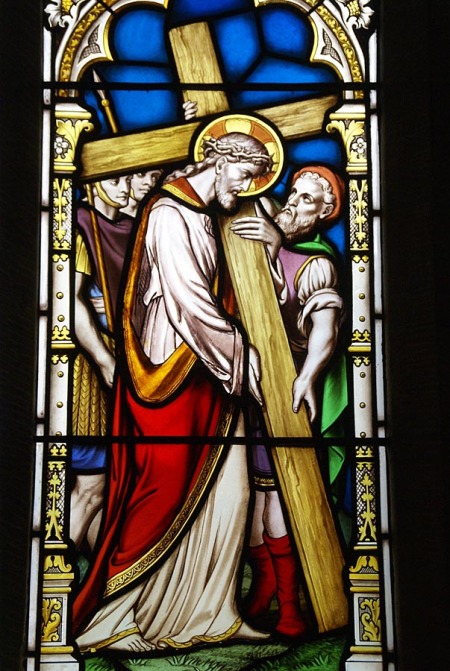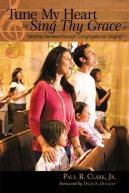 Reminders are a necessity of life. Throughout my adult life I have become gradually more sophisticated with my system of reminders. At one time (long ago and far away) I thought I could keep everything in my head. I suppose I could, just not for very long. I began to use lists and written notes to remind myself of items that needed attention and even appointments I needed to keep. I distinctly remember my first sophisticated system of reminders, which for me was the famed “Daytimer” system. I recall getting my first box from Daytimers, Inc. in the mail, which contained packages of little booklets, one for each month of the year. It was exciting in a way. I used that system for many years, actually until I finally converted to an electronic system called a “PDA,” a personal digital assistant. In recent years I have converted to the so called, “smartphone.” Truth is the phone may be smart, but I do not feel very smart trying to operate it, though it does help to keep me reminded of appointments, tasks, and contact information that I need – when I can remember how to operate it, that is. To stay “in the game” of my life I still have to add other helps like my computers (work & home), post-it notes, voicemail I leave for myself, and requests from Charlotte, my ministry assistant, and Ebbie, my life partner. In other words, I need lots of reminders just to keep living my life and fulfilling responsibilities. Sometimes all I need is to see one of these helpers, and I am reminded by their presence of something I need to do.
Reminders are a necessity of life. Throughout my adult life I have become gradually more sophisticated with my system of reminders. At one time (long ago and far away) I thought I could keep everything in my head. I suppose I could, just not for very long. I began to use lists and written notes to remind myself of items that needed attention and even appointments I needed to keep. I distinctly remember my first sophisticated system of reminders, which for me was the famed “Daytimer” system. I recall getting my first box from Daytimers, Inc. in the mail, which contained packages of little booklets, one for each month of the year. It was exciting in a way. I used that system for many years, actually until I finally converted to an electronic system called a “PDA,” a personal digital assistant. In recent years I have converted to the so called, “smartphone.” Truth is the phone may be smart, but I do not feel very smart trying to operate it, though it does help to keep me reminded of appointments, tasks, and contact information that I need – when I can remember how to operate it, that is. To stay “in the game” of my life I still have to add other helps like my computers (work & home), post-it notes, voicemail I leave for myself, and requests from Charlotte, my ministry assistant, and Ebbie, my life partner. In other words, I need lots of reminders just to keep living my life and fulfilling responsibilities. Sometimes all I need is to see one of these helpers, and I am reminded by their presence of something I need to do.
As worship leaders and as worshipers we need reminders. Some of the best sermons I have heard, some of the best books and articles I have read, some of the best conferences I have attended were not really new information for me. They were reminders. We need reminders to help keep us busy about the right things. We need reminders to help maintain our focus on what is important. I had a discussion with one of our worship leaders yesterday about the sad fact of having to remind people over and again of their responsibility in church. We talked about the way we can find ourselves actually begging for participation. He quickly noted, “you (meaning me, Paul) experience this kind of pleading with us (meaning music ministers) trying to get participation in state music activities. Often true, but I won’t go there right now. We both agreed that it feels very wrong to have a sense that you are begging people to fulfill their commitment. It feels wrong to be begging someone to exercise their God-given gift that they do not deserve to offer God, the loving gift-giver, the praise He completely deserves.
Corporate worship includes this reminding component as an important part of its exercise. We are rehearsing God’s story. All elements of worship help to remind us. Our hymns even remind us of our joy in re-telling and re-hearing the story.
“I love to tell the story;
For those who know it best
Seem hungering and thirsting
To hear it like the rest:”
(Katherine Hankey, 1834-1911)
As worship prompters you and I need to be certain that we are reminding worshipers of our position in relation to the Triune God. As basic as it is to our faith, we need to be reminded that God is Creator, Sustainer, Comforter, Friend; that His ways are not our ways, and His thoughts are not out thoughts, yet God in Christ is closer than a brother. We need to be reminded of His wrath, His mercy, His grace, and our life of worship offered as “living sacrifices” in response to all He is. Worship works these reminders.
Many of us talk a lot about how worship is “not about us, but all about God.” Saying such things, and even attempting to conjure up romantic kinds of expressions toward Jesus is one thing, but laying our lives on the altar in a way that brings glory to Him through the people we become is quite another. It may inspire me to feel close to Christ when I look on Him, but it seems more important that I display Him. Graham Kendrick’s modern hymn says it well, paraphrasing 2 Cor 3:18:
“As we gaze on your kingly brightness
So our faces display Your likeness,
Ever changing from glory to glory
Mirrored here may our lives tell Your story;”
(Graham Kendrick 1950- )
Have we spent our time and energy reminding people of what is happening in our organization that we call the church, (a focus that is on us) that we have sacrificed the greater reminders on the acts of God in our world and lives? Are we spending much time getting the media presentation ready to entice people to come to something else (the not yet) that we are missing the celebration of joining God’s presence and our fellowship of faith in the present (right now)? Do our symbols in our worship space speak of our own comfort (soft chairs, convenient song lyric presentations, theatrical lighting, chic color designs) more than of God’s acts (creation, atonement, provision, return)?
Perhaps rather than begging our people to do what we all know they should, we need to be more faithful to remind them of God’s story, His terms of worship, His provisions for meaningful relationship with Him, and the demands of remaining in good standing with one another as members of His body. Our emotions will respond differently to reminders at different times. There are times when a reminder may irritate us. Our response may be, “oh, I know that already.” We may even be irritated at the time it takes to hear a reminder that has been oft-repeated. On the other hand, there may be a reminder that stokes our proverbial fire. We may find our soul crying out in agreement with the most basic of creedal statements that make us one in Christ. Is this not the essence of a heartfelt “Amen!” The Sunday after September 11, 2001, there seemed to be much affirmation for the most basic of Christian truth as we stared Satan’s lies in the face and reaffirmed our battle cry to be one in the Spirit. Our God was God! Creator of heaven and earth! One in three persons! Lord of all nations! Jesus was the Name at which every knee would bow and every tongue confess! Hmmm.hadn’t we said those things thousands of times before? The reminders were full of fire that day. So, what of the day in which we live now? Is Satan’s lie any less untrue or destructive? Need there be less passion in your song? Is your song made new by the freshness of your connection to the old, old story, or are your people bored because you have no new ear candy with which to fatten their emotionally starved lives this Sunday? Perhaps our “Great Commission Resurgence” efforts would be enlivened by vibrant reminders that when our Lord gave us the instruction to “go and make disciples” He promised to be with us always, even to the end of the earth. Perhaps we need reminders that our Lord instructed the disciples to wait on the promised one who would “clothe them in power from on high.” What’s more, He then ascended into heaven, to the right hand of the Father (Luke 24:50-51). As Dr. Phyllis Tickle reminded my graduating class, “we are people of the Resurrection, yes, but let us not forget we are also people of the Ascension!”
Early days of Baptist worship included readings of confessions and what would probably be termed by us to be creeds as a part of weekly worship in many cases. Most congregations participated in such readings at the time of monthly communion at the very least. Such readings were reminders of the foundational beliefs that bound these people together. They also served as reminders of a way of looking at the world, their own communities, their families, and their individual lives in relation to Christ and His Church. Doesn’t sound like a great church growth strategy, but it did serve as a reminder of who they were, upon Whom they depended and placed their faith, and how they were mutually accountable to “walk worthy of their calling in Christ Jesus.” Perhaps such reminders helped them to pass on their faith to such an extent that it has come to us today.
Oops.my phone just reminded me I gotta go.
Paul

